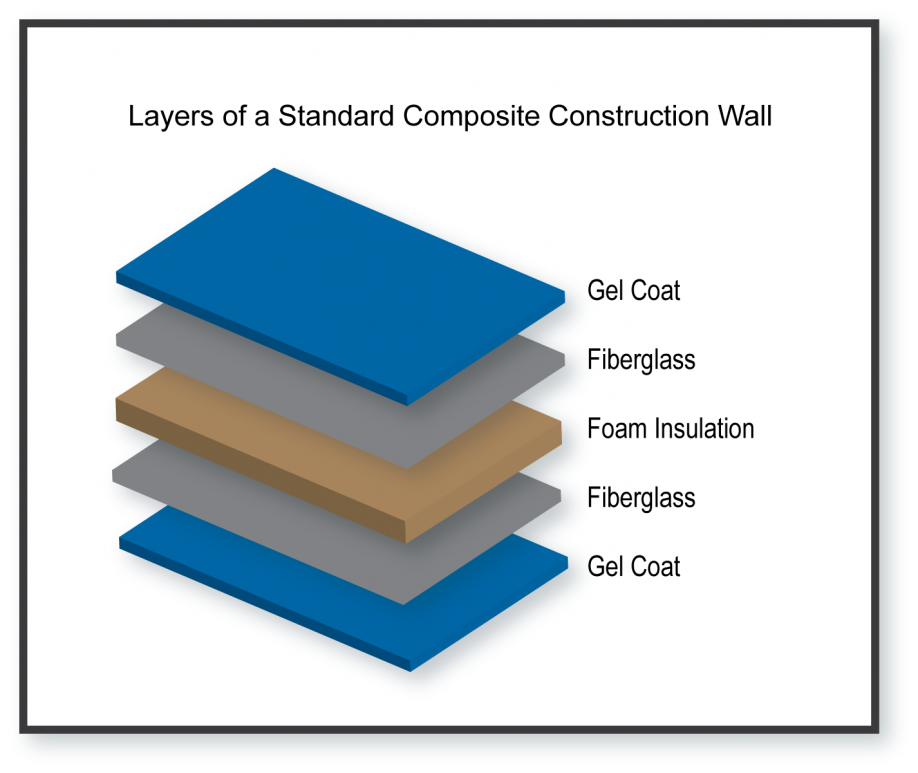Discovering the Uses and Advantages of Recycled Composites in Modern Industries
The combinations of recycled products with innovative composite innovations offers an appealing opportunity for improving sustainability, strength, and cost-efficiency throughout different fields. As sectors look for innovative solutions to attend to ecological concerns and improve operational efficiencies, the incorporation of recycled compounds arises as an engaging alternative.
Environmental Benefits of Recycled Composites
The use of recycled composites in modern markets provides considerable environmental advantages, adding to the reduction of waste and the conservation of natural sources. By incorporating recycled composites into manufacturing procedures, sectors can decrease their reliance on virgin materials, therefore reducing the amount of waste created and the power required for removal and production. This shift in the direction of using recycled composites helps in drawing away products from land fills, minimizing the concern on waste management systems, and lowering greenhouse gas exhausts related to conventional manufacturing practices.
Furthermore, using recycled compounds advertises the preservation of natural resources such as hardwood, minerals, and water, which are commonly depleted through the removal and processing of basic materials (composites). By prolonging the lifespan of products with recycling, industries can aid maintain environments and biodiversity by reducing the need for brand-new resources. Overall, the fostering of recycled composites in modern-day industries plays an important role in advertising sustainability and reducing the ecological effect of manufacturing procedures
Enhanced Longevity in Item Manufacturing
With a concentrate on long life and toughness, incorporating recycled compounds right into product production processes enhances durability and sustainability. By making use of recycled composites, suppliers can produce items that are not only solid however also resistant to tear and use, making them optimal for lasting use in different sectors. The combination of various materials in recycled composites can often lead to boosted stamina and resilience contrasted to typical materials, offering a cost-effective service for generating long-lasting goods.
One of the crucial benefits of using recycled compounds in item production is the capacity to tailor the product properties to meet particular toughness needs. By adjusting the make-up and manufacturing techniques, producers can personalize the recycled compounds to endure severe ecological problems, hefty tons, or regular usage without compromising on performance. This versatility in design and manufacturing enables for the creation of extremely long lasting items that maintain their integrity with time, minimizing the requirement for constant replacements and eventually adding to a much more sustainable production process.
Cost-Effectiveness and Financial Advantages
Including recycled composites right into item manufacturing not just boosts longevity and sustainability yet also supplies significant cost-effectiveness and economic benefits. Utilizing recycled composites can bring about decreased product costs as recycled materials are often more economical than virgin materials. In addition, reusing composite materials can lower waste disposal costs and lower the need for garbage dump area, adding to general expense savings for sectors.

Technology and Design Versatility With Recycled Compounds
Making use of recycled compounds in contemporary markets supplies unparalleled chances for development and design versatility. By incorporating recycled products right into composite production processes, business can push the limits of standard style constraints and explore new possibilities. The versatility of recycled composites permits the creation of complicated shapes and frameworks that might not be attainable with standard materials.
Among the essential benefits of recycled composites is their ability to be formed into various forms, giving developers the flexibility to experiment with one-of-a-kind sizes and shapes. composites. This versatility opens a world of imaginative possibilities, allowing the advancement of light-weight yet resilient items that fulfill the particular demands of different sectors
Moreover, making use of recycled compounds promotes lasting click for more practices and supports the round economy by minimizing waste and decreasing the ecological impact of manufacturing processes. This concentrate on environment-friendly style services lines up with the growing fad in the direction of Clicking Here sustainability in contemporary sectors, making recycled composites an important resource for forward-thinking and cutting-edge business.
Applications Throughout Numerous Industries
Recycled compounds discover impactful and diverse applications across a vast variety of markets as a result of their distinct homes and sustainability advantages. In the auto field, these materials are progressively utilized for producing lightweight and resilient components, enhancing gas effectiveness and reducing carbon exhausts. The aerospace market take advantage of recycled composites in the manufacturing of airplane components, where the products' strength-to-weight ratio is vital for making sure security and efficiency. In building, these compounds are utilized for producing strong yet environmentally friendly structure materials, adding to lasting infrastructure growth. The renewable resource market utilizes recycled composites in wind generator blades and solar panels, harnessing their stamina and resistance to severe environmental problems. In addition, the marine market makes use of these products for making watercraft hulls and parts, providing boosted sturdiness and deterioration resistance. The versatility and sustainability of recycled compounds make them important across various sectors, driving innovation and environmental stewardship. composites.
Conclusion
Finally, the application of recycled composites in modern industries supplies significant environmental benefits, boosted sturdiness in item manufacturing, cost-effectiveness, and financial advantages. The use of recycled compounds allows for technology and layout adaptability throughout various markets. On the whole, the fostering of recycled composites provides a lasting and practical service for fulfilling the needs of the industry while also minimizing environmental influence.

One of the key benefits of using recycled compounds in product manufacturing is the capacity to tailor the material buildings to meet specific longevity needs. Using recycled compounds can lead to decreased material expenses as recycled materials are frequently less costly than virgin products. The aerospace industry advantages from recycled compounds in the production of airplane parts, where the materials' strength-to-weight ratio is critical for making sure safety and performance.
Comments on “Exploring the Benefits of Composites in Building and construction”